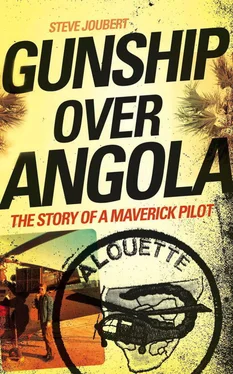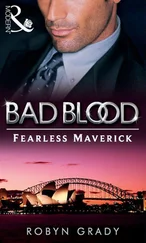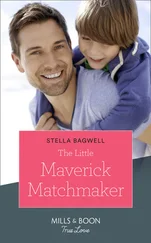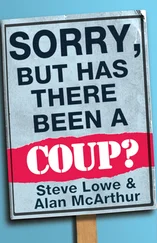‘Find me guilty on all counts and… and… fuck the lot of you!’
I stormed out of his office.
*
My appointment with the manager of a Barclays Bank branch didn’t go as well as I’d hoped. He laughed out loud when I told him that I wanted to borrow R20 000 from the bank to pay the SAAF back for the millions (even in those days it cost millions to train an Air Force pilot) spent on training me.
‘Get over it,’ he said, before urging me, in a fatherly way, to think very, very carefully about trashing my career while in a state of such aggravation.
Two days passed before I’d calmed down enough to objectively contemplate my predicament and take the long walk down to the legal office to change my plea and put on record a more balanced version of events than that offered by the general.
‘Sorry, no can do,’ said the legal officer brightly, when I eventually got an audience with him. ‘In military law, once you have pleaded guilty to the charges, you may not retract your plea, but don’t worry, at the summary trial itself, you will have plenty of opportunity to offer evidence in mitigation of sentence.’
I never checked whether this was actually the case or whether he was just disinclined to redo all the paperwork – probably the latter – but I left his office and started to work on my mitigation arguments.
The summary trial took place the following week in the office of AFB Swartkop’s OC, the legendary Colonel Jimmy ‘JJ’ Groenewald, who, as luck would have it, was appointed as the presiding officer (the judge). He was one of the last of the Second World War pilots still serving in the SAAF in a full-time capacity. At the start of formalities, I think he quickly came to the conclusion that this was anything but a cut-and-dried case of a junior officer overstepping the mark.
I had never been in his hallowed presence before, so I was nervous beyond description as I marched into his office to begin the hearing, which the legal officer estimated would ‘take only 30 minutes or so. You have, after all, pleaded guilty to all 14 charges and all you have with which to defend yourself is your mitigation statement.’
After opening by repeating the charges, every bloody one of them, the legal officer told Colonel Groenewald that I’d pleaded guilty to all charges and that all he needed to do was issue appropriate punishment for my multiple sins.
‘I… I’d like to say something before you do that, Colonel,’ I interrupted.
‘Go ahead then,’ Colonel Groenewald said.
Using every trick in the book to demonstrate my complete innocence, I launched into a long and finely detailed account of the comedy of factors, coincidences and misunderstandings that had played out during that fateful nine-hour trip. In the end, I spent almost two and a half hours in ‘mitigating’ my sentence.
At the point where I described General Hanekom emerging from the impenetrable cloud of dust and grass on the Amsterdam rugby field, Colonel Groenewald got out of his chair and sat on the floor, pulling up his knees to his chest as he laughed and laughed until the tears rolled in torrents down his cheeks. When I was finally done with the tale, I asked him if I could visit the gents.
By the time I returned to his office, he’d ordered that tea be brought for us. Then he asked the legal officer to wait outside to be summoned, ‘which might take a while’, he added.
‘In all my years—’ he started to say when we were alone, before doubling up with laughter again until he lost his breath.
Finally, and this took quite a while (believe me), he became serious and said, ‘My boy, there is no doubt in my mind that you are completely without guilt on all the charges. My concern is that you never professed your innocence from the start. Why not?’
I told him about the anger I’d felt when the charges were levelled at me and the disappointment at the lack of support offered by the squadron hierarchy. He promised that he’d deal with that issue, and I have no doubt that he did. I never again heard of a young pilot being left in the lurch when he needed support.
‘But, practically, you and I need to box very clever now,’ he went on. ‘General Hanekom is aware that you are answering to his charges today, and I am under strict orders to report on the outcome to him the moment these proceedings end. I think that we have two options to properly resolve this matter. The first will have me finding you not guilty on all charges—’
I interrupted him in mid-sentence: ‘I really like that option, Colonel.’
‘But I suggest you listen to option two before you make your final choice,’ he continued. ‘If I find you innocent, as I should, I can assure you that General H will not accept my findings and that he will then use all of his considerable influence to hound you ceaselessly until the day you depart the SAAF and probably even beyond that.’
Stunned at this revelation, I said glumly, ‘I’m pretty stuffed, aren’t I, sir? What is option two?’
‘Not necessarily,’ replied Groenewald. ‘What I suggest is that I find you guilty on all 14 charges, state on the trial report that I categorically reject any of your arguments in mitigation, and then I hand out the harshest possible punishment that the MDC allows, on each count.’
I went pale.
‘With all due respect, I don’t think I’m a great fan of option two, sir,’ I said, visions of having to take up permanent residence in the orderly officer’s room, scrubbing toilets and staying a second lieutenant until I retired swamping my imagination.
‘But here’s the kicker,’ he said. ‘If you choose option two, I promise you faithfully that I won’t allow a single page of paperwork relating to this matter ever to leave my office or to become attached to your personal file. In fact, once I’ve reported to General H that you have been severely dealt with, and that you are unlikely to see the light of day for years to come, I will personally shred every single document involved. Please trust me. I will not let you down.’
Thus, the matter was settled. We shook hands and he invited the legal officer to rejoin us.
With a sternness that was almost comical, Colonel Groenewald then read out his contrived judgments and followed these with the applicable maximum sentences under each count. As he read out the severe punishments, he never once displayed a hint of understanding, nor even a single acknowledgement, of the mitigating factors that I had so passionately and eloquently presented.
I was lashed mercilessly by Colonel Groenewald, who brought down a whole slew of fines, extra duties, delayed promotion and even two years’ denial of Christmas bonus on my miserable head.
But, try as I might, I still couldn’t hide the grin that wrapped around my face from ear to ear, nor fully mute the odd chuckle as a particularly harsh censure was handed down. I could see the legal officer struggling to comprehend. I suspect he began to cotton on right at the end, as I was leaving the trial venue, when Colonel Groenewald told him to leave the processing of the paperwork up to him.
‘After all,’ Groenewald said, ‘I’ve not got much else to do.’
Years later, I had occasion to draw my personal file and peruse it closely.
There was not a single reference to the ‘Amsterdam incident’.
But then, you already knew that, didn’t you?
In December 1980, I got married. I had known Desiree for only nine months, at least six of which I had spent on tours in the bush. In the year after we tied the knot, I was home for only four months in total.
It should surprise no one that this was not the basis for a happy-ever-after fairy tale. Although we both tried our best to make it work, the marriage ended after ten years. However, it did produce a gift of incalculable value to the two of us, our daughter Tamarin.
Читать дальше












